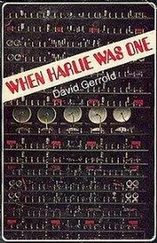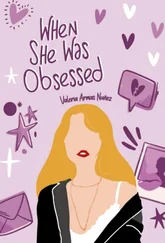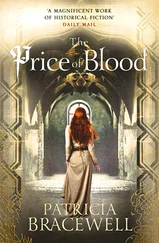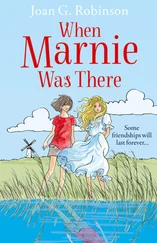In the spring of 1976, in Manchester, Devoto co-founded Buzzcocks with guitarist Pete Shelley. They recorded the massively influential Spiral Scratch EP, and a highly collectable official bootleg, Time’s Up . Heard now, these recordings have lost none of their fizzed-up, self-aware energy, driven by Shelley’s sublime reinvention of jagged, high-speed pop guitar playing. On machine-gun-tempo songs such as ‘Friends of Mine’, ‘Boredom’ and ‘Orgasm Addict’, Devoto delivers his smarter-than-smart lyrics with an edgy petulance that disguises their wit and biting acuity as a kind of pantomime of dumbness. ‘You’re making out with schoolkids, winos and heads of state,’ he lashes out on ‘Orgasm Addict’, ‘You’re making out with the lady who puts the little plastic robins on the Christmas cake.’
Artistically, the young Devoto was responding to influences from Alice Cooper to Camus. Having studied philosophy as a student, and having been interested in meditation, his lyrics on Spiral Scratch and Time’s Up were fully intended to be carefully posed, self-questioning philosophical statements about the problems of existence. Interviewing himself, when Spiral Scratch was originally released in 1977, Devoto wrote of the song ‘Breakdown’, ‘“Breakdown”’s hero is in the position of Camus’ Sisyphus – “To will is to stir up paradoxes.”’ Punk rock had thus been a personal and creative catalyst for Devoto, offering him a means to conduct nothing less than a biopsy on his own soul.
‘I think that punk rock was a new version of trouble-shooting modern forms of unhappiness,’ he says, ‘and I think that a lot of our cultural activity is concerned with that process, particularly in our more privileged world, with time on our hands – in a world, most probably, after religion. My life changed at the point I saw the Sex Pistols, and became involved in trying to set up those concerts for them. Suddenly I was drawn into something which really engaged me. Punk was nihilistic anger, not overtly political anger. Political anger could have been the radical Sixties.
But going back to what I was going through, personally, and all of the stuff that you do go through as a student, I remember – before punk even – pursuing Artaud’s Theatre of Cruelty; I had pictures of the Baader Meinhof on my wall, and all of that hunger strike stuff was going on. It was that struggle for commitment which you have as a young person. And where did you put all that when you’re a young person like me, who wanted to play a “Yes, but –” game with everything?’
Since 1990, Devoto has given the whole punk reunions circuit an extremely wide berth, as well as being highly reluctant to offer up his recollections to what has become the major academic industry of ‘Punk Studies’. An example of this reticence could be seen in his contribution to the commemorative documentary, which was made in 1996, about the two Sex Pistols concerts held at Manchester’s Lesser Free Trade Hall in the summer of 1976. Despite being the man who actually arranged these concerts – with his own first group, the Buzzcocks, supporting at the second – Devoto chose to be represented on the programme by a reel-to-reel tape-recorder, playing a recording of his few comments about the occasion.
Person to person, he can give a meticulous account of his involvement in punk, often using factual information and chronology as a means of avoiding generalized statements about punk’s ‘attitude’.
‘Can I just say,’ he states, ‘that what I don’t buy are things like a piece which I read by Caroline Coon about punk a few years ago, which said how desolate the mid-Seventies were, culturally and politically. And I don’t buy John Lydon’s line, either, in this new film The Filth and the Fury , where he’s going on about “the system being really oppressive in Britain, and that’s why punk rock happened”. I just don’t accept this stuff, really. In myself, I can’t say that I was feeling particularly great at that time – but what’s new?’
Having left the Buzzcocks almost as soon as they released their first record, Devoto formed Magazine as a way of expanding the possibilities that had been opened by punk. In a leaving statement issued on 21 February 1977, he wrote: ‘I don’t like most of this new wave music. I don’t like music. I don’t like movements. Despite all that, things still have to be said. But I am not confident of Buzzcocks’ intention to get out of the dry land of new waveness to a place from which these things could be said. What was once unhealthily fresh is now a clean old hat.’
As ever, Devoto’s stance was one of disaffection and dissatisfaction – rejecting the early complacency into which punk rock so readily dropped, prior to becoming little more than a picture postcard parody of itself. With Magazine, he explored the causes of this stance through lyrics and performance at once disturbing and playful, self-aware and endlessly self-questioning.
Musically, Magazine comprised the formidable teaming up of Dave Formula, John McGeoch and the legendary Barry Adamson, whose own solo work would pursue the idea of attempting to solve the case of oneself. In hindsight, Magazine would have found their place in the history of music on the strength of just one of their early recordings, ‘Shot by Both Sides’.
‘Magazine was its own particular blend of trying to contain a certain sort of intelligence in that sort of music. One of my partners of those years, asking about a Magazine lyric, said, “Is that about you and me?” And I said, “You’ll never know because I swap them around.” But also in Magazine there was the idea of me addressing the audience and making ambiguous pronouncements about our respective roles – your idea of me, and my idea of you. And I was really playing with that during the period of the first two Magazine LPs – when I was in the prime of my ambition. I’m still proud of Magazine. Half a lifetime of feeling went into it.
‘And I’m sure that I tried to rant on about the importance, to me, of paradox and contradiction. That there is some state of grace or point of ultimate knowledge in trying to come to an aesthetic understanding of these things. I’m trying to explain the Magazine song, “Shot by Both Sides”, I suppose, and this is the area which I’ve explored in everything I’ve done since the Buzzcocks.’
In many ways, Devoto’s life since adolescence, when he first started to write, has been an epic of self-portraiture. Even now, he is writing his autobiography and recording it as a spoken word document, to be left to the National Sound Archive after his death. He has barely reached the middle Seventies and the work is already twenty chapters – ten hours – long, including one hundred and fifty samples of music. Not surprisingly, one of his favourite authors is Marcel Proust. His own writing, as a lyricist, has articulated his personal position with an eloquence and originality that rivals much of the best contemporary fiction and drama.
But at the heart of his constant enquiry – as revealed with brooding poignancy on his final LP with Luxuria, Beast Box – seems to lie a fear of what he might discover if he could actually answer his own questions about himself. ‘They’ve opened the Beast Box haven’t they?’ he concludes the title track of that LP, and even on the haunting crescendo of ‘Railings’, which he recorded in 1998, for the rock group Mansun, his distinctive voice appeared to croon from its own grave, ‘Don’t burn your hand on the window, if you just want to take in the view …’
‘Life is hell,’ says Devoto during this interview, neither joking nor seeking to shock, ‘I don’t think I’ve ever strayed very far from that idea since I was about twenty. Now, in the last ten years, since I’ve essentially quit music, I’ve come to some kind of accommodation with that. But at a blood and brain level, that’s really how I feel, and it’s one big reason why so far I don’t have kids.
Читать дальше












